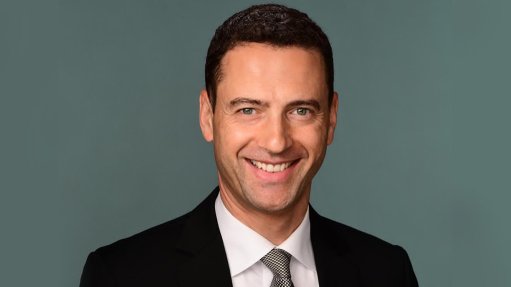Finance Minister denies Eskom partial exemption in terms of financial reporting
Finance Minister Enoch Godongwana has decided not to grant State-owned utility Eskom a partial exemption from disclosing irregular, fruitless and wasteful expenditure and material losses from criminal conduct in its annual financial statements, the National Treasury has announced.
The Minister has acknowledged the commitment of the Eskom board and management to fight and expose fraud and corruption, and the additional compliance and reporting burden facing Eskom and other State-owned entities (SOEs).
However, he is of the view that Eskom needs to do more operationally to reduce the scope of fraud and corruption before such exemption can be considered, and for it to be effective.
As Eskom attempts to recover from the devastating impact of State capture, and as it takes steps against past and current corruption, it needs to ensure that its anti-corruption strategy is credible and has the support of key stakeholders such as investors, lenders, suppliers, customers and the public, Treasury emphasises.
Treasury says it has engaged with the Auditor-General and considered all public comments received through Government Gazette General Notice No. 3270 of April 6 which withdrew the Government Gazette General Notice No. 3247 of March 31 and invited public comments on a proposed exemption for Eskom.
In total, 56 comments were received, with 23 comments received in formal correspondence and 33 received through emails, covering a broad spectrum of accounting and reporting, auditing, governance, legal principles and public interest issues.
Treasury also engaged with audit firms, professional auditing and accounting bodies, a ratings agency, and other relevant authorities to discuss the challenges and seemingly onerous compliance reporting requirements applicable to SOEs such as Eskom, it notes.
Although irregular expenditure does not automatically equate to fraud and corruption, many comments submitted view irregular expenditure as an indicator of how SOEs are managing their finances.
Accounting and auditing experts noted that SOEs are currently subject to more onerous accounting and reporting standards than commercial companies, as they are required to comply with both the Public Finance Management Act (PFMA) and the Companies Act, as well as the International Financial Reporting Standards (IFRS) and JSE Debt Listing Requirements.
In addition, as part of the Eskom debt relief arrangement, the Minister has instituted additional reporting obligations on Eskom, which the entity will be required to submit to Parliament and oversight structures.
The extensive PFMA reporting requirements make it more onerous for an SOE compared with a listed company to have its financial statements qualified, even when there is no financial mismanagement or corruption, Treasury points out.
It says that this, in turn, has the perverse effect of making SOEs more likely to require funding, or a guarantee, from the fiscus.
Treasury says that while it remains committed to promoting the principles of stronger accountability and transparency in all financial matters, as it has done since 1994, it also recognises the need to support and strengthen Eskom and other SOEs in reversing the effects of State capture, making them more agile and responsive to their constitutional mandates and begin to play a more significant role in the economy, contributing to economic growth, and reducing their dependency on the fiscus.
In doing this, Treasury highlights that it remains committed to upholding the highest standards of financial governance in the management of Eskom’s finances and not compromising the ethos of the PFMA.
Treasury says it will continue to assist Eskom to strengthen its mechanisms to prevent, detect and investigate any financial irregularities, and ensure that acts of fraud and corruption are fully and properly reported, regardless of the reporting requirements.
Treasury remains of the view that SOEs are facing legitimate technical challenges regarding compliance reporting, and the need to differentiate between corrupt and suspicious transactions and expenditure made in good faith but not necessarily complying with the plethora of financial and non-financial laws and rules.
The comments from professional bodies and experts provide the basis for further engagement on the accounting and compliance reporting challenges, and to assist in developing a better framework for compliance reporting in SOEs, it adds.
Treasury emphasises that it is committed to collaborating further with relevant stakeholders and authorities to contribute to these reforms and ensure the PFMA adequately addresses the complexities of financial reporting in the public sector.
Treasury says it will also continue to work with the Auditor-General to develop a revised irregular, fruitless and wasteful expenditure framework to form part of the PFMA reforms and address these and other financial and compliance reporting challenges, which will be finalised after an appropriate consultation process, for implementation in 2024 and after.
“It will be critical for the country that SOEs are not dependent on fiscal allocations and guarantees for their capital and operational funding requirements,” it states.
Meanwhile, non-profit the Organisation Undoing Tax Abuse (Outa) has commended this decision by the Minister.
“Government’s about-turn on this shows an awareness of public anger over the attempts to exempt Eskom and the value of consulting the public,” says Outa CEO Wayne Duvenage.
“We hope the Minister will find a more transparent and effective mechanism for SOEs to address the problem of historical misspending," he adds.
Article Enquiry
Email Article
Save Article
Feedback
To advertise email advertising@creamermedia.co.za or click here
Press Office
Announcements
What's On
Subscribe to improve your user experience...
Option 1 (equivalent of R125 a month):
Receive a weekly copy of Creamer Media's Engineering News & Mining Weekly magazine
(print copy for those in South Africa and e-magazine for those outside of South Africa)
Receive daily email newsletters
Access to full search results
Access archive of magazine back copies
Access to Projects in Progress
Access to ONE Research Report of your choice in PDF format
Option 2 (equivalent of R375 a month):
All benefits from Option 1
PLUS
Access to Creamer Media's Research Channel Africa for ALL Research Reports, in PDF format, on various industrial and mining sectors
including Electricity; Water; Energy Transition; Hydrogen; Roads, Rail and Ports; Coal; Gold; Platinum; Battery Metals; etc.
Already a subscriber?
Forgotten your password?
Receive weekly copy of Creamer Media's Engineering News & Mining Weekly magazine (print copy for those in South Africa and e-magazine for those outside of South Africa)
➕
Recieve daily email newsletters
➕
Access to full search results
➕
Access archive of magazine back copies
➕
Access to Projects in Progress
➕
Access to ONE Research Report of your choice in PDF format
RESEARCH CHANNEL AFRICA
R4500 (equivalent of R375 a month)
SUBSCRIBEAll benefits from Option 1
➕
Access to Creamer Media's Research Channel Africa for ALL Research Reports on various industrial and mining sectors, in PDF format, including on:
Electricity
➕
Water
➕
Energy Transition
➕
Hydrogen
➕
Roads, Rail and Ports
➕
Coal
➕
Gold
➕
Platinum
➕
Battery Metals
➕
etc.
Receive all benefits from Option 1 or Option 2 delivered to numerous people at your company
➕
Multiple User names and Passwords for simultaneous log-ins
➕
Intranet integration access to all in your organisation


















